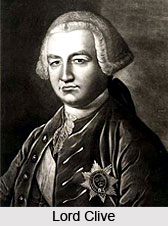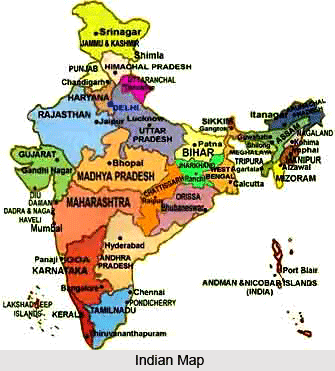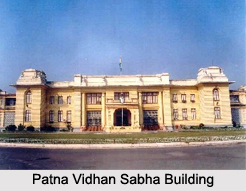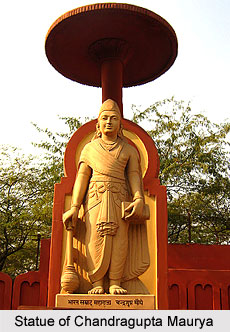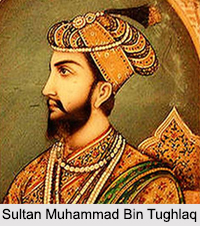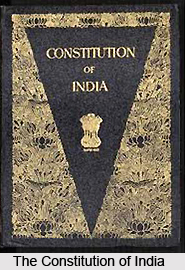 Article 370, deals with the temporary provisions with respect of the State of Jammu and Kashmir.
Article 370, deals with the temporary provisions with respect of the State of Jammu and Kashmir.
1. Notwithstanding anything in this Constitution:
a. The provisions of article 238 shall not apply in relation to the State of Jammu and Kashmir,
b. The power of Parliament to make laws for the said State shall be limited to;
i. Those matters in the Union List and the Concurrent List which, in consultation with the Government of the State, are declared by the President to correspond to matters specified in the Instrument of Accession governing the accession of the State to the Dominion of India as the matters with respect to which the Dominion Legislature may make laws for that State; and
ii. Such other matters in the said Lists, as, with the concurrence of the Government of the State, the President may by order specify.
Explanation- For the purpose of this article, the Government of the State means the person for the time being recognized by the President as the Maharaja of Jammu and Kashmir acting on the advice of the Council of Ministers for the time being in office under the Maharaja`s Proclamation dated the fifth day of March, 1948;
c. He provisions of article 1 and of this article shall apply in relation to this State;
d. Such of the other provisions of this Constitution shall apply in relation to that State subject to such exceptions and modifications as the President may by order specify.
i. Provided that no such order which relates to the matters specified in the Instrument of Accession of the State referred to in paragraph (i) of sub-clause (b) shall be issued except in consultation with the Government of the State:
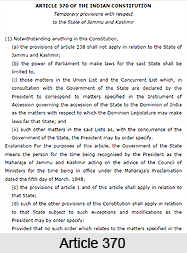 ii. Provided further that no such order, which relates to matters other than those referred to in the last preceding proviso, shall be issued except with the concurrence of the Government.
ii. Provided further that no such order, which relates to matters other than those referred to in the last preceding proviso, shall be issued except with the concurrence of the Government.
2. If the concurrence of the Government of the State referred to in paragraph (ii) of sub-clause (b) of clause (1) or in second proviso to sub-clause (d) of that clause be given before the Constituent Assembly for the purpose of framing the Constitution of the State is convened, it shall be placed before such Assembly for such decision as it may take thereon.
3. Notwithstanding anything in the foregoing provisions of the article, the President may, by public notification, declare that this article shall cease to be operative or shall be operative only with such exceptions and modifications and from such date as he may notify:
Provided that the recommendation of the Constituent Assembly of the State referred to in clause (2) shall be necessary before the President issues such a notification.
4. In exercise of the powers conferred by this article the President, on the recommendation of the Constituent Assembly of the State of Jammu and Kashmir, declared that, as from the 17th day of November 1952, the said art. 370 shall be operative with the modification that for the explanation in col. (1) thereof the following Explanation is substituted namely:
Explanation-For the purpose of this Article, the Government of the State means the person for the time being recognized by the President on the recommendation of the Legislative Assembly of the State as the *Sadar-I-Riyasat of Jammu and Kashmir, acting on the advice of Council of Ministers of the State for the time being in office.
